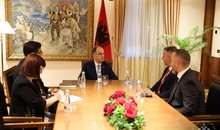
 Flash News
Flash News
Latvia-Albania/ The first half closes, the result is tied
New York Times: Belgrade's "General Staff" Affair Has Shocked America Too
One of the main players of the national team is injured before the match with Latvia
The Traffic Police of Vlora arrests 16 drivers
Why does Blendi Kajsiu analyze 'Berishism' in a test tube, not in real life?
Archive / Did Bismarck say "Albania is a 'geographical expression' or is it a Serbian invention?"

by JUSUF BUXHOVI
This article is part of the column "PRINT Archive" opened by Politiko.al with materials extracted from the funds of the Periodical and the Book of the National Library. Published in the newspaper "RD", Saturday, March 4, 1995, page 2. Taken from the newspaper "Rilindja" of Kosovo.
It has long been said that the first German chancellor, Bismarck, during the Berlin congress allegedly said that "Albania is only a geographical concept, while Albanians do not exist"!
Historical facts show that Bismarck in the seventh session of the Congress of Berlin and the thirteen Albanians is described as "an ethnic European people that has its own space, which must be kept intact within the Ottoman Empire."
It has been more than a hundred years since the statement of the first German Chancellor, Bismarck, that allegedly said that "Albania is only a geographical concept, while Albanians do not exist"! The forgers of this statement, primarily Serb historians led by Cububrilovic, Hadaxhivasilev, Garahananin, and others to this day, have always cited a 'study' by Vladan Georgorjevic ((otherwise Prime Minister of Serbia on the eve of the First World War). world), where he is a pamphlet book against Albanians, published in 1913 in several languages and in some European centers, brings the opinion of Bismarck "quoted from the documents of the Berlin Congress.
The truth, however, is different. Judging from the original documents of the Berlin congress stored in the Archive of the Ministry of Foreign Affairs of the German Government in Bonn, as well as from the documents published in Germany on the occasion of the celebration of the centenary of the Berlin Congress in a large volume by the "Herald Boldt Geiss", it can be said that this "finding" of Georgorjevic does not exist at all. In the tenth session, to which Georgorjevic refer refers, it is clear that the Albanian issue is not busy at all. On the contrary, the Albanians and their problems related to Serbia and Montenegro are discussed in two other sessions: in the seventh and in the thirteenth. At the seventh session, dated June 26, 1878,
"Albanian Kazats: Vushtrri, Karshumlia, Yrkyp (Prokuple), and Leskovic should not be separated from the Gate. If Congress were to decide to secede part of this space, the Prepolac-Shluht (Takhali Khan Getsidi) part between Karshumli and Pristina should remain in Turkey, in order to preserve the Pristina and Vranje districts, which should once to represent the northern part of the border of the Gate ”.
This passage of the protocol of the Congress is also found in the complete edition of the materials of the Congress of Berlin, published by Imanuel Geiss (on page 238).
In the additional paragraph of the eighth protocol, in point two, also Bismarck during the verbal document commits that "Albanian districts Rozhaja and Gucija, as well as Malësia e Hotit and Kelmendi, also inhabited by Albanian population, remain at the Gate", (see page 258). In point c of the same protocol, we again encounter Bismarck's proposal in this decisive form that has been presented to the congress, which states:
"Since the district of Bar, together with the city is inhabited exclusively by Albanians, it must remain under the supervision of the Gate" (see page 259).
From the protocol of the seventh session and the annexes made to the protocol of the eighth session, Bismarck's commitments are clear in the interest of preserving the Albanian ethnicity. What is found in the meeting process shows that Bismarck was very precise and decisive in defining the Albanian territories and the Albanian ethnicity. In the seventh session of June 26, he defines the Albanians of Vushtrri, Kursumlija, Skopje, and Leskovac as "Albanians in terms of population and ethnicity", and proposes that they remain under the supervision of the Porte, precisely why they are inhabited by Albanians. In the minutes of the twelfth session of July 4, Bismarck demands that the representative of Turkey in the Congress, Mehmet Ali Pasha, declare that Turkey will protect the non-Turkish peoples in the Balkans, primarily the Albanians. Slavs and Jews, and that the Gate should commit itself to resume the territorial and political reform of the Empire as soon as possible in order to protect these peoples, who according to the German concept, had to remain for some time within the Gate, in order to not to be divided between the Slavic states of the Balkans. The Turkish representative Mehmet Ali Pasha, in the meeting of July 4, after the insistence of Bismarck, will declare, and this will be noted in the protocol "that Porta will respect the ethnic features of Albanian cities and provinces such as Plava, Gucia, Bar ... In the same protocol, the final word of Mehmet Ali Pasha is even written, where it is said: The Albanian bar cannot be separated from Albania (page 296). which according to the German concept, had to remain for some time within the Gate, in order not to be divided between the Slavic states of the Balkans. The Turkish representative Mehmet Ali Pasha, in the meeting of July 4, after the insistence of Bismarck, will declare, and this will be noted in the protocol "that Porta will respect the ethnic features of Albanian cities and provinces such as Plava, Gucia, Bar ... In the same protocol, the final word of Mehmet Ali Pasha is even written, where it is said: The Albanian bar cannot be separated from Albania (page 296). which according to the German concept, had to remain for some time within the Gate, in order not to be divided between the Slavic states of the Balkans. The Turkish representative Mehmet Ali Pasha, in the meeting of July 4, after the insistence of Bismarck, will declare, and this will be noted in the protocol "that Porta will respect the ethnic features of Albanian cities and provinces such as Plava, Gucia, Bar ... In the same protocol, the final word of Mehmet Ali Pasha is even written, where it is said: The Albanian bar cannot be separated from Albania (page 296).
The thirteenth session of the Congress was held on July 5, where it is about some privileges and a kind of autonomy of Mirdita, demanded by Austria-Hungary and France, Bismarck opens the discussion with the words: "We must talk about another dimension of the Albanian issue ”. So, he also considered the deliberate separation of Mirdita by Austria-Hungary and France, who sought to be placed "within certain privileges", as a segment of the Albanian issue. If it were, as Vladan Georgorjevic claims, and Serbian historiography, Bismarck would not have spoken at all about Albanian districts, Albanian cities or even talked about the dimension of an Albanian dimension, as he considered the case of Mirdita.
Another material preserved in the German State Archive in Bonn speaks in favor of this finding. It is about the new map of the Balkans and the European part of the Ottoman Empire, which was presented to the diplomats in Berlin by Bismarck after the closing of the Congress. This map clearly shows the ethnic definition of Albanian lands and the rest of Albania within the Porta - in the north, it goes to Vranja - in the east, it goes down from Tetovo to Ohrid and it goes south to Ioannina and Arta. This map has long stood in Bismarck's cabinet.
However, the deliberate speculation of Georgorjevic and the historiography about Bismarck has become a "historical fact" for many Albanian historians, who even today quote what the German chancellor did not say. From the ignorance of the facts, especially the original materials of the Berlin Congress and other documents that have been published about this very important conference for the Balkans and for us, Albanian historiography still treats this chapter based on ideological loads or speculative references received. by foreigners. It is time to research all the documents and come up with a clear, complete, and scientific position on the Berlin Congress and other issues, which are still always mystified, unenlightened, or misinterpreted.
Latest news


69-year-old man jumps from building in Tirana, dies on the spot
2025-06-10 22:45:41



Latvia-Albania/ The first half closes, the result is tied
2025-06-10 21:43:14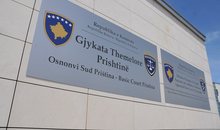

"Albania is aging at a rapid pace", Staticienia: The situation is alarming
2025-06-10 21:28:21
Albania takes advantage over Latvia, Rei Manaj scores
2025-06-10 21:20:12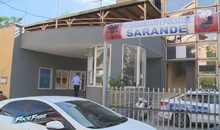
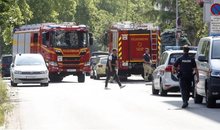
Girl from Kosovo victim of massacre in Austria, family reacts: Great pain!
2025-06-10 21:15:48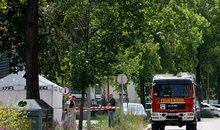
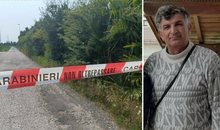
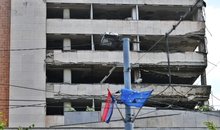
New York Times: Belgrade's "General Staff" Affair Has Shocked America Too
2025-06-10 20:16:35
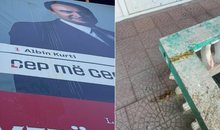
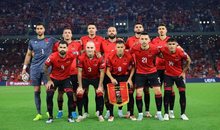
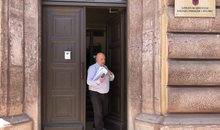
KPA is familiar with the submissions in the vetting of prosecutor Robert Kote
2025-06-10 19:12:21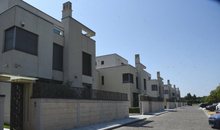
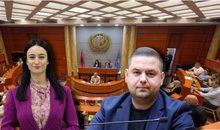

Sa është pasuria e Dua Lipës?
2025-06-10 18:31:21
How Edi Rama defended the delinquent Irena Gjoka at every step
2025-06-10 18:15:57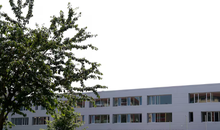
From 1987 to 2025, the biggest attacks that have rocked Europe
2025-06-10 18:06:12

"The last days in Tirana"/ Shpat Kasapi separates from his wife?
2025-06-10 17:39:27

The bloody attack in Austria, among the victims is an Albanian teenager
2025-06-10 16:59:41
Serbia's Chief Negotiator: There will be a trilateral meeting in Brussels today
2025-06-10 16:38:59
The Traffic Police of Vlora arrests 16 drivers
2025-06-10 16:31:52
Why does Blendi Kajsiu analyze 'Berishism' in a test tube, not in real life?
2025-06-10 16:30:59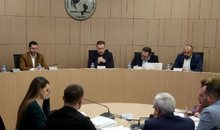


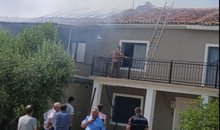

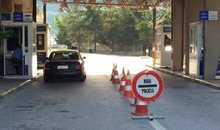


Katy Perry is "attacked" by a fan on stage in the middle of the song!
2025-06-10 15:10:03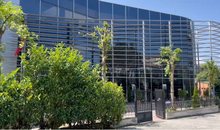

Erion Alibej Confesses: How We Killed Talo Çela's Brother and Emiljano Ramazan
2025-06-10 14:41:28
From orange peels to bananas, discover the foods that help you with stress
2025-06-10 14:32:20
Tried to burn neighbor with gasoline, 32-year-old arrested in Librazhd
2025-06-10 14:21:02
Russian propaganda targeted the European Community summit in Tirana
2025-06-10 14:05:39
Teenager arrested in Vlora with cannabis and cocaine
2025-06-10 13:51:29


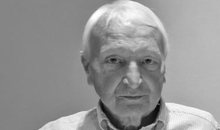
Former Prime Minister of Kosovo, Bujar Bukoshi, passes away
2025-06-10 13:02:39

Here's how to adjust the air conditioner during hot days
2025-06-10 12:38:47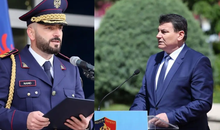
The names of 13 candidates for the head of the BKH are published
2025-06-10 12:23:05


Berisha: Aida of the BKH reported every morning to Ardi Veliu, Edi Rama's spy
2025-06-10 11:55:11
Shooting at a school in Austria, 5 reported dead
2025-06-10 11:50:31

45 thousand euros found in the van that arrived at the Port of Vlora
2025-06-10 11:24:29

Berisha leaves SPAK: Irena with 5 surnames has filed a lawsuit for insulting me
2025-06-10 11:04:24
It's happening again, the Language and Literature exam theses are out
2025-06-10 10:56:13
Do we need vitamin D even in the summer?
2025-06-10 10:45:52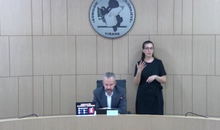

Sali Berisha appears in SPAK
2025-06-10 10:29:33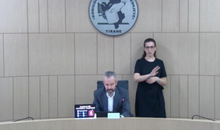


The world faces a decline in fertility rates
2025-06-10 10:01:21
Serious in Greece! Albanian parents forget baby in car, little girl dies
2025-06-10 09:41:31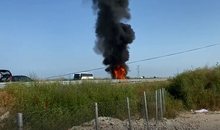
Car burns on Kashar-Thumanë highway
2025-06-10 09:23:39
Today is the match against Latvia, how is the national team expected to line up?
2025-06-10 09:13:13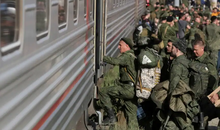

Foreign exchange, how much foreign currencies are bought and sold for today
2025-06-10 08:52:22


Horoscope, what do the stars have in store for you today?
2025-06-10 08:15:14
Weather forecast/ How temperatures will vary throughout the day
2025-06-10 08:00:30
Posta e mëngjesit/ Me 2 rreshta: Çfarë pati rëndësi dje në Shqipëri
2025-06-10 07:45:26
"He is a fool", Tare warns: In a century we will no longer have Spaç
2025-06-09 22:56:19

"We have facts", Vokshi: 20 SP MPs are gang representatives
2025-06-09 22:14:55
Spy novel legend Frederick Forsyth dies
2025-06-09 21:49:01


Two police officers finish testifying in the 'Banjska' case
2025-06-09 21:14:27

Skype is shutting down after more than 2 decades
2025-06-09 20:54:17
Inter officially presents new coach, Cristian Chivu
2025-06-09 20:43:51
Inflation situation in Albania / We continue to pay more for food
2025-06-09 20:32:02

Latvia-Albania, match without captain
2025-06-09 20:07:54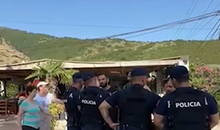
Residents clash with IKMT and police in Jalë: This is murder!
2025-06-09 19:47:24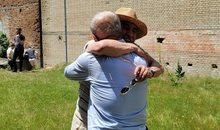
Spaçi/ Former prisoners and young activists join forces to protect memory
2025-06-09 19:35:10
Surprising development in Kosovo, Kurti meets with Bedri Hamza
2025-06-09 19:16:07
57-year-old man in Postribë shot himself with a shotgun, transported to hospital
2025-06-09 19:05:03
SPAK summons Sali Berisha tomorrow
2025-06-09 18:44:58
Loredana Brati breaks the silence about Jozi's new romance
2025-06-09 18:33:10

Are single women happier than single men?
2025-06-09 18:18:27

Plague disease, 150 small cattle die in Val i Martanesh
2025-06-09 17:47:43